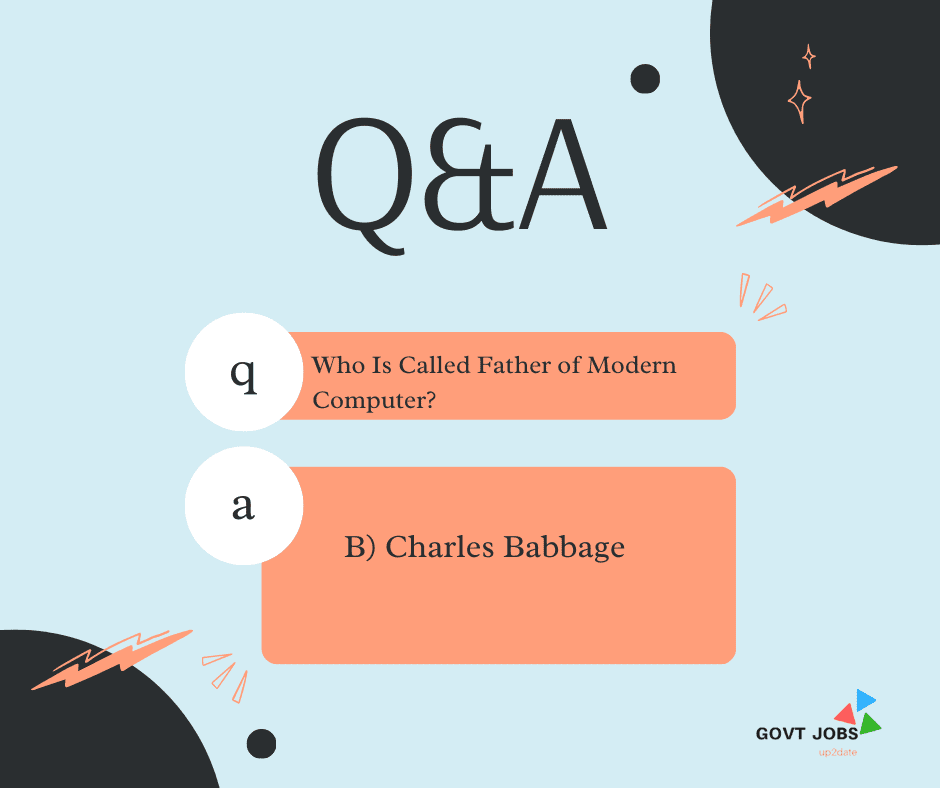
Who Is Called Father of Modern Computer?
A) Alan Turing
B) Charles Babbage
C) Ada Lovelace
D) John von Neumann
Answer:
B) Charles Babbage
More Details on the Father of Modern Computer
- Charles Babbage conceptualized the idea of a programmable computer in the 19th century.
- He designed the Analytical Engine, considered the precursor to modern computers.
- Babbage’s work laid the foundation for the development of modern computing machines.
- His concepts introduced crucial elements like the input of data, processing, and output of results.
- Babbage collaborated with Ada Lovelace, who wrote the first algorithm for his Analytical Engine.
- Although never fully constructed during his lifetime, Babbage’s designs inspired future generations of computer scientists.
- Babbage’s contributions are celebrated as instrumental in shaping the modern digital era.

